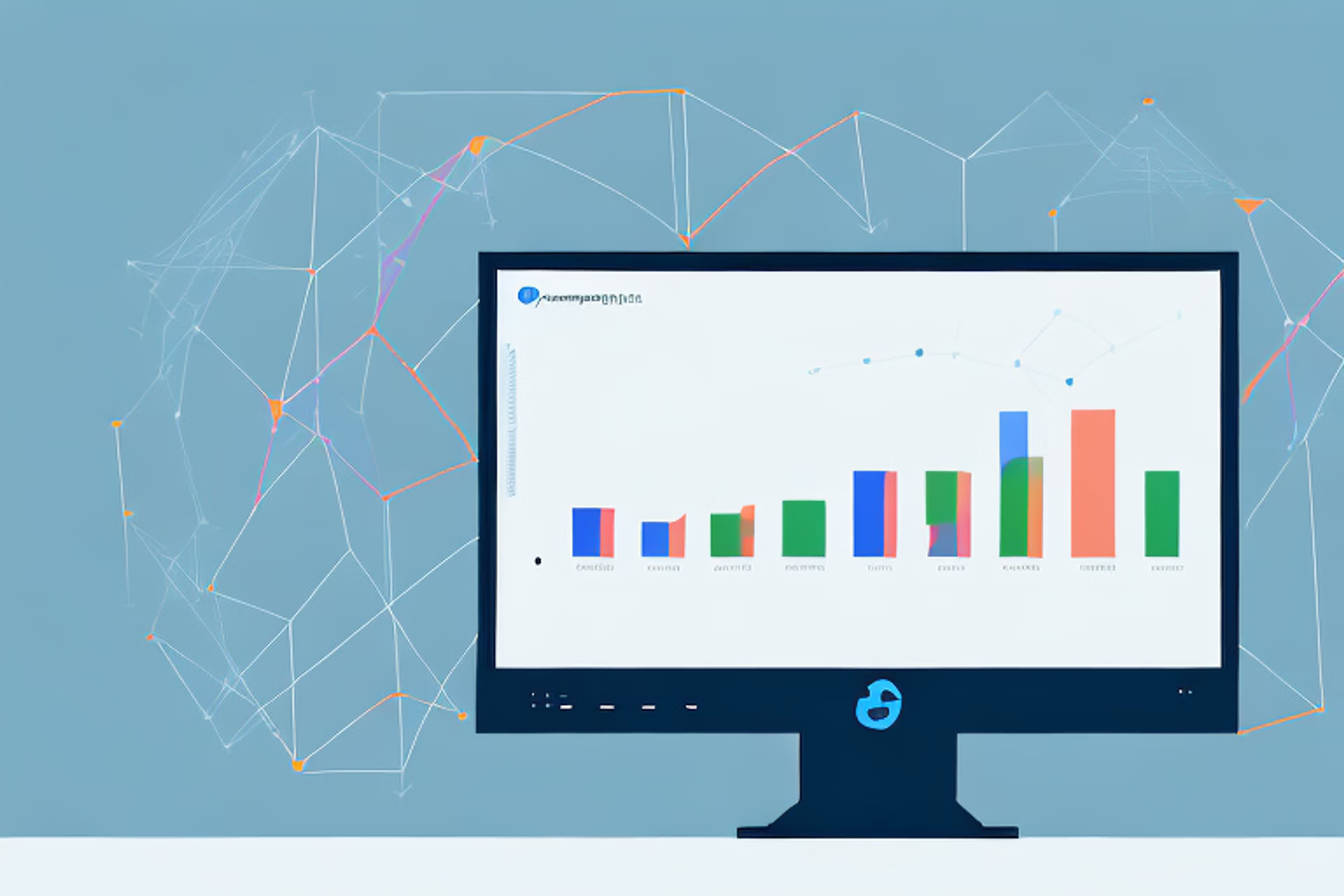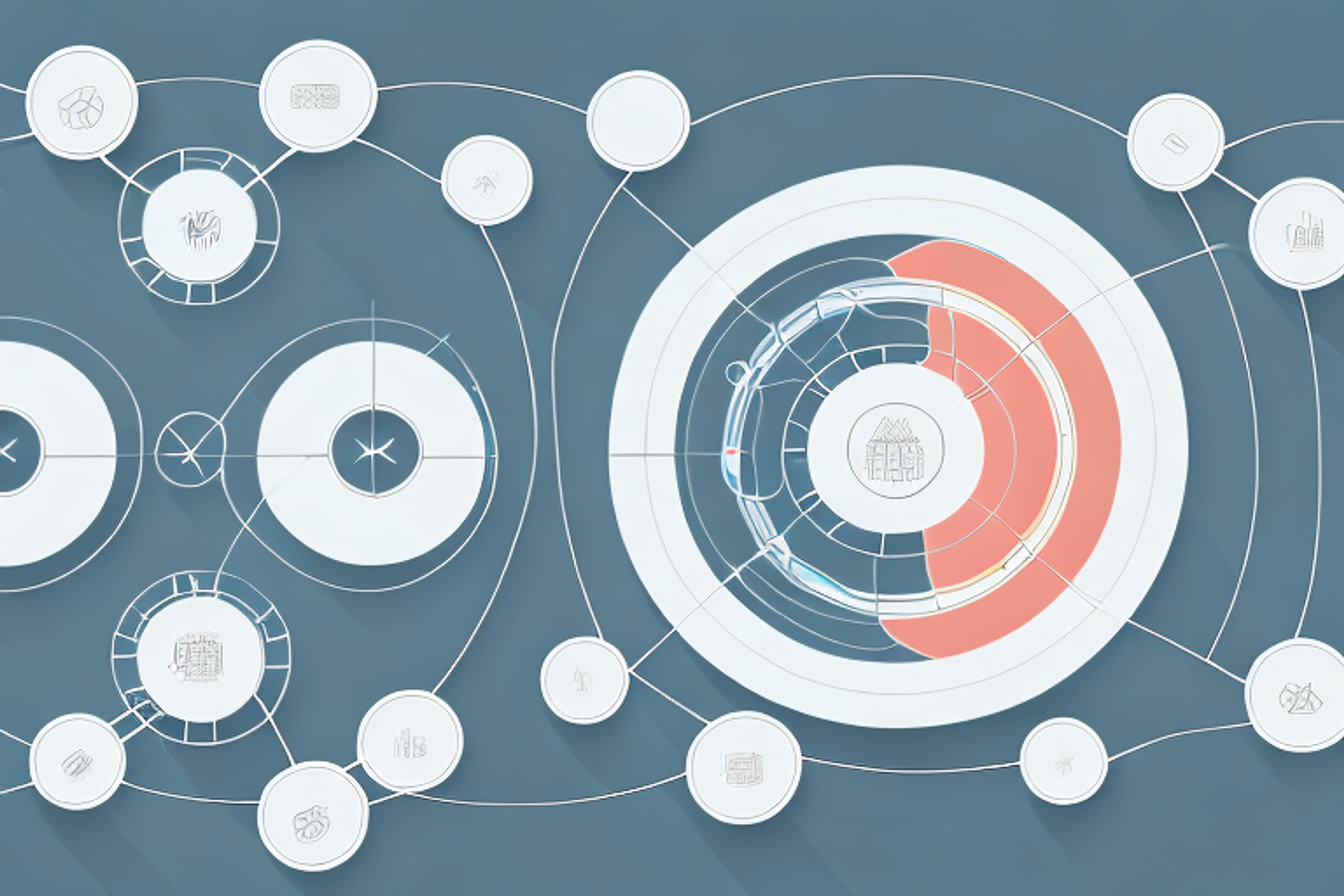A Day in the Life of an Engagement Manager
Get a glimpse into the daily routine of an Engagement Manager in this insightful article.
Posted April 10, 2025

Table of Contents
Being an engagement manager can be a complex and demanding role requiring a diverse range of skills. A typical day in the life of an engagement manager involves prioritizing tasks, managing time effectively, building strong relationships with clients, collaborating with cross-functional teams, identifying, assessing and mitigating project risks, tracking progress, and delivering results on time and to the satisfaction of clients. In this article, we will explore the challenges and rewards of being an engagement manager and discuss the qualities required for success in this growing field.
The Role of an Engagement Manager: An Overview
In this dynamic role, an engagement manager is responsible for managing the relationship with clients, leading project teams, and ensuring that projects are delivered on time, within budget, and to the satisfaction of clients. Engagement managers are also responsible for managing risks, tracking progress, and making timely adjustments to ensure project success. Their role involves working closely with cross-functional teams, including project managers, engineers, designers, and developers, to ensure smooth collaboration and coordination across all project stages.
Additionally, engagement managers are often involved in identifying new business opportunities and developing proposals to win new clients. They may also be responsible for managing the financial aspects of projects, such as creating and managing budgets, forecasting revenue, and ensuring profitability. Effective communication skills are essential for engagement managers, as they must be able to clearly communicate project status, risks, and opportunities to both internal and external stakeholders. Overall, the role of an engagement manager is critical to the success of projects and the satisfaction of clients.
Starting the Day: Prioritizing Tasks and Managing Time Effectively
Engagement managers usually begin their day by reviewing their to-do list and prioritizing tasks based on their importance and urgency. They have to manage time effectively to ensure that deadlines are met, and projects are delivered within the allocated budget. Successful time management strategies employed by engagement managers include scheduling their day, setting reminders for deadlines, and using digital tools like calendars and project management software.
In addition to prioritizing tasks and managing time effectively, engagement managers also need to communicate effectively with their team members and clients. This involves setting clear expectations, providing regular updates, and addressing any concerns or issues that arise. Effective communication helps to build trust and ensures that everyone is on the same page, which is essential for successful project delivery.
Another important aspect of starting the day as an engagement manager is staying up-to-date with industry trends and best practices. This involves reading industry publications, attending conferences and webinars, and networking with other professionals in the field. By staying informed, engagement managers can bring new ideas and insights to their projects, which can help to drive innovation and improve outcomes for clients.
Engaging with Clients: Building Strong Relationships and Meeting Expectations
Building strong relationships with clients is one of the core responsibilities of an engagement manager. They often communicate with clients to understand their needs, anticipate their expectations, and provide status updates on project progress. Engagement managers must work closely with their clients to develop a clear understanding of the project scope and deliverables and ensure that project timelines are met. Effective communication skills, empathy, and tactful negotiation tactics are essential qualities for engaging with clients effectively.
Moreover, engagement managers should also focus on building trust with their clients. Trust is a crucial element in any business relationship, and it can be established by consistently delivering high-quality work, being transparent about project progress, and addressing any concerns or issues promptly. By building trust, engagement managers can foster long-term relationships with their clients, which can lead to repeat business and referrals. Additionally, engagement managers should also seek feedback from their clients regularly to ensure that they are meeting their expectations and identify areas for improvement.
Leading Project Teams: Collaborating with Cross-Functional Teams to Deliver Results
Engagement managers work with cross-functional teams to deliver project results on time and to the satisfaction of clients. They are responsible for leading project teams, providing direction, and ensuring that tasks are completed efficiently. Successful engagement managers possess leadership skills, including the ability to motivate, inspire and encourage others to work collaboratively towards a common goal.
Effective communication is also a critical skill for engagement managers. They must be able to clearly articulate project goals, timelines, and expectations to team members and stakeholders. Additionally, they must be able to listen actively to feedback and concerns from team members and clients, and adjust plans accordingly.
Engagement managers must also have a strong understanding of project management methodologies and tools. They should be able to identify and mitigate risks, manage budgets, and track progress against project milestones. By staying organized and focused, engagement managers can ensure that projects are completed on time, within budget, and to the satisfaction of all stakeholders.
Communication is Key: Effective Communication Strategies for Engaging with Stakeholders
Successful communication is essential to maintaining effective stakeholder engagement. Engagement managers need to communicate with all stakeholders regularly, including senior management, clients, and teams, to ensure adequate alignment between project objectives and expectations. Effective communication strategies include creating a project communication plan, providing regular project updates, and addressing feedback and concerns from all stakeholders in a timely and professional manner.
It is also important to consider the different communication styles and preferences of stakeholders. Some may prefer face-to-face meetings, while others may prefer email or phone communication. Understanding these preferences and adapting communication methods accordingly can help to build stronger relationships with stakeholders and improve overall engagement. Additionally, using visual aids such as charts and graphs can help to convey complex information in a more easily digestible format.
Managing Risks: Identifying, Assessing and Mitigating Project Risks
Engagement managers are responsible for managing project risks, including identifying, assessing, and mitigating risks that may adversely affect project timelines or budgets. Successful engagement managers have a systematic approach to risk management, including creating a risk management plan, implementing mitigation strategies, and monitoring and addressing risks regularly throughout the project lifecycle.
One important aspect of risk management is identifying potential risks before they occur. This can be done through brainstorming sessions with project team members, reviewing historical data from similar projects, and conducting risk assessments. By identifying risks early on, engagement managers can develop effective mitigation strategies and minimize the impact of risks on project outcomes.
Another key component of risk management is communication. Engagement managers must communicate risks and mitigation strategies to project stakeholders, including clients, team members, and senior management. Effective communication ensures that everyone is aware of potential risks and understands the steps being taken to mitigate them. It also helps to build trust and confidence in the project team and can lead to better project outcomes.
Monitoring Progress: Tracking Progress and Making Timely Adjustments to Ensure Success
Engagement managers must continuously monitor project progress and make timely adjustments to ensure project success. They should assess the performance of team members, track project milestones, and use data analytics to inform their decision-making process. Being proactive and flexible in reacting to issues that arise during course of the project is key to ensuring timely project delivery.
One effective way to monitor progress is to establish clear and measurable goals at the outset of the project. This allows engagement managers to track progress against specific targets and make adjustments as needed. Additionally, regular check-ins with team members can provide valuable insights into any challenges or roadblocks that may be hindering progress.
Another important aspect of monitoring progress is ensuring that all stakeholders are kept informed of project status. This includes providing regular updates on progress, as well as any changes or adjustments that are made along the way. Effective communication is key to ensuring that everyone is on the same page and that the project stays on track.
Delivering Results: Ensuring Projects are Delivered on Time, Within Budget, and to Client Satisfaction
The ultimate goal of an engagement manager is to deliver projects on time, within budget, and to the satisfaction of clients. To achieve this goal, engagement managers, must apply project management methodologies effectively, accurately scope projects, and continuously monitor and measure progress throughout the project lifecycle. Successful engagement managers take an outcome-based approach to project management, ensuring that they exceed client expectations while meeting all project objectives.
One of the key factors in delivering successful projects is effective communication. Engagement managers must establish clear lines of communication with clients, stakeholders, and team members to ensure that everyone is on the same page and that any issues or concerns are addressed in a timely manner. This includes regular status updates, progress reports, and risk assessments.
In addition, engagement managers must also be able to adapt to changing circumstances and be flexible in their approach. This may involve adjusting project timelines, budgets, or scope as needed to ensure that the project stays on track and meets the needs of the client. By being proactive and responsive, engagement managers can build trust and confidence with clients and stakeholders, and ultimately deliver successful outcomes.
The Challenges of the Job: Coping with Stress and Managing Work-Life Balance as an Engagement Manager
Managing a dynamic workload, meeting client expectations while keeping teams motivated and delivering projects successfully carries a significant amount of stress. For engagement managers, it is critical to maintaining a healthy work-life balance to avoid burnout and maintain high productivity levels. Some effective strategies for coping with stress include prioritizing self-care activities, regular exercise, and mindfulness meditation techniques.
The Future of Engagement Management: Trends and Opportunities in this Growing Field
The role of engagement manager is a rapidly growing field with opportunities globally. With an increasing focus on providing the best customer experience, the demand for engagement managers will continue to grow steadily. With Covid disrupted global workplace landscape, there is now an even greater need for engagement managers who can build and maintain the human connections required for remote work, and virtual interactions. As a result, it is likely that future engagement managers will benefit from increased job security and opportunities for professional growth.
Qualities of a Successful Engagement Manager: Skills, Experience, and Characteristics Needed for Success
The skills and characteristics of an engagement manager are often critical for their success in the challenging role. Engagement managers need to possess skills in project management, time management, leadership, communication, risk management, and stakeholder engagement. They must also have experience with digital project management software, data analytics, and other technology tools. Additionally, to be a successful engagement manager, one must have excellent communication skills, empathy, and the ability to work well under pressure, manage multiple deadlines, prioritize tasks effectively, and adapt quickly to changing project requirements.
In Conclusion
A day in the life of an engagement manager can be fast-paced, challenging, and rewarding. It's a dynamic role requiring skills in stakeholder engagement, project management, risk management, leadership, and collaboration. Successful engagement managers are highly skilled professionals who possess the necessary qualities to manage client relationships, deliver projects on time, within budget, and to the satisfaction of our clients. We hope that this article has provided a good overview of what it looks like to be an engagement manager and how to achieve success in this exciting and essential role.



















